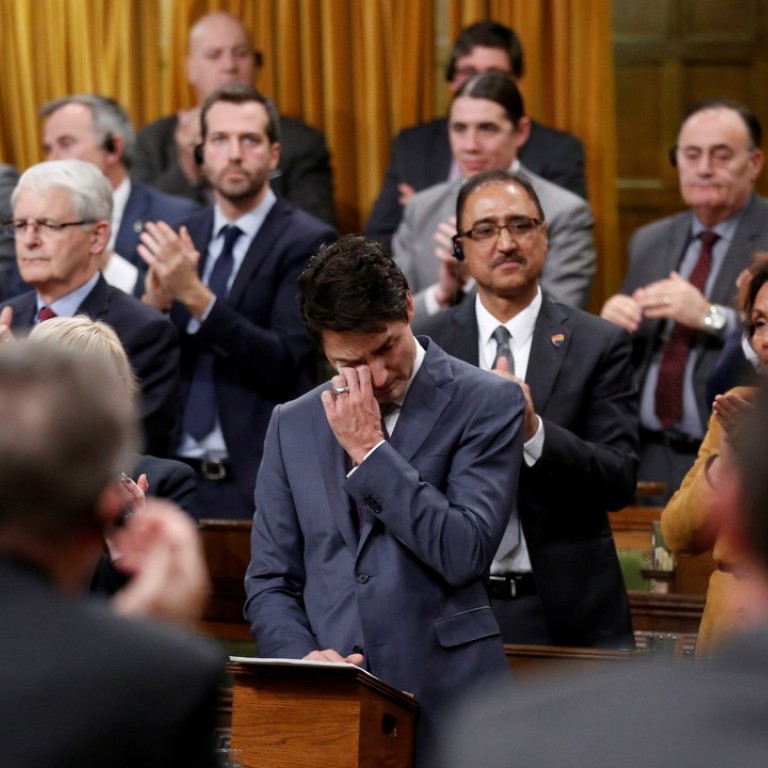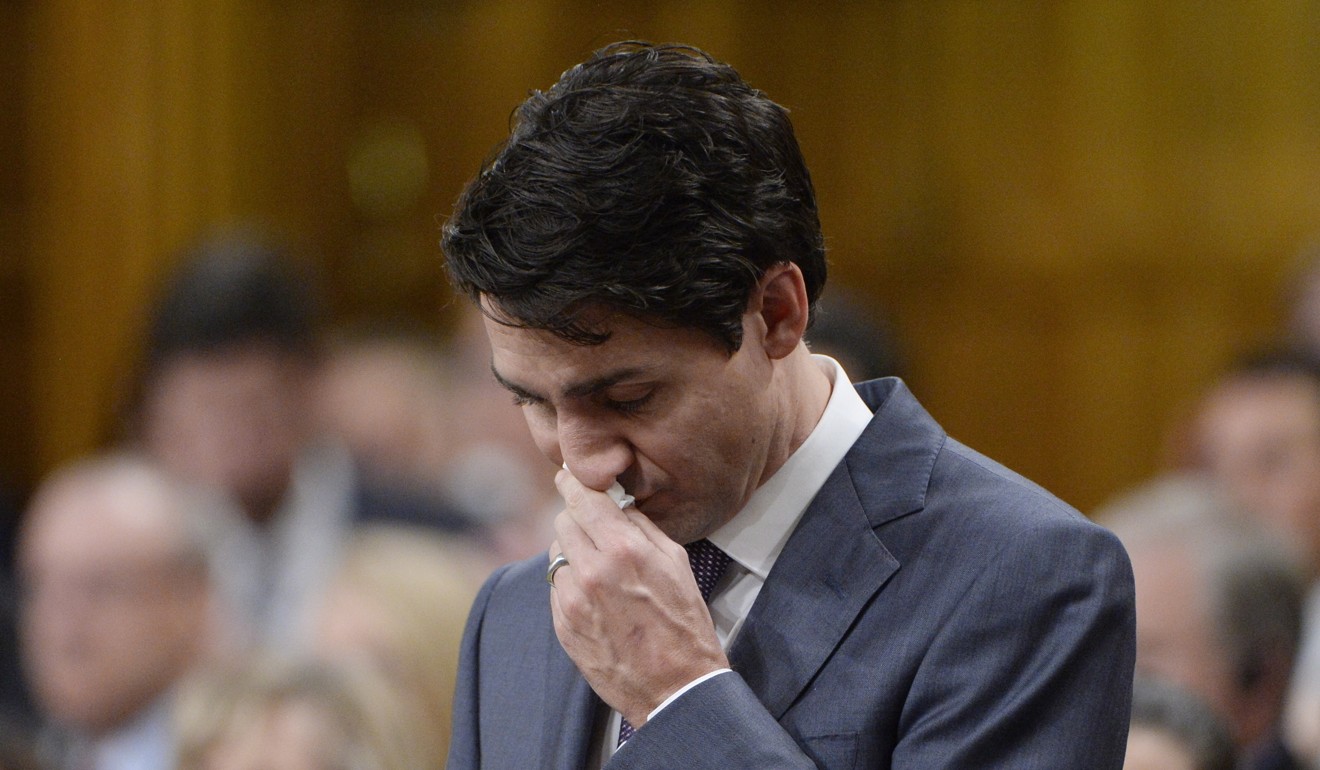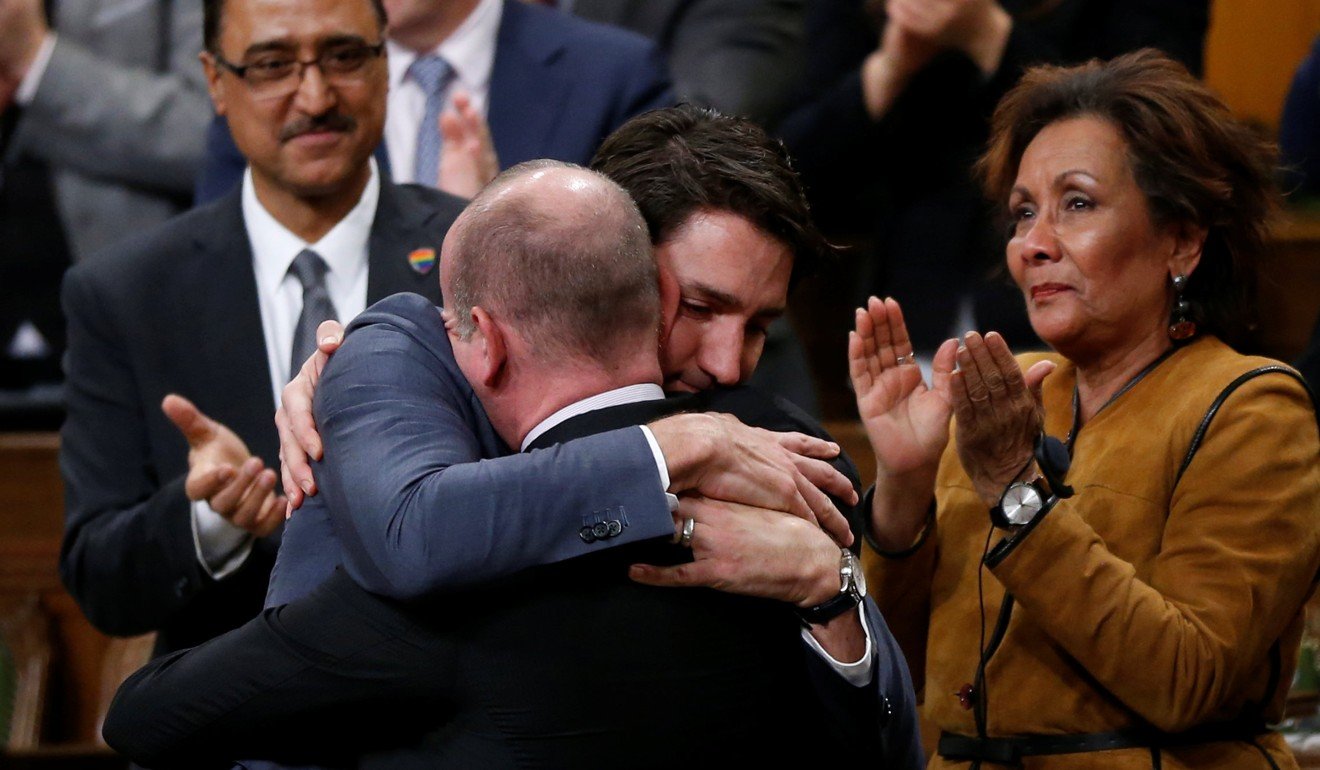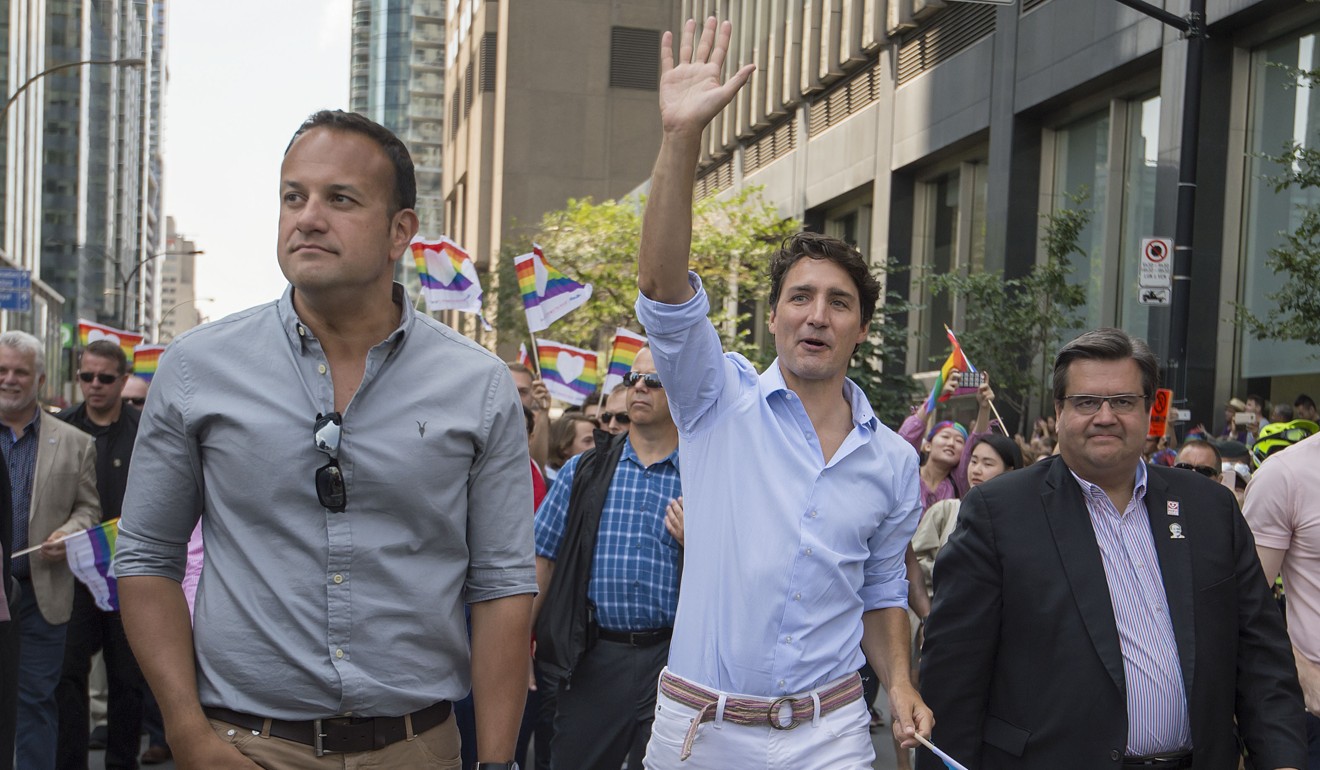
Canada’s PM Trudeau tearfully apologises for gay ‘witch hunt’ and decades of official discrimination
‘For the oppression of the lesbian, gay, bisexual, transgender, queer, and two-spirit communities, we apologise’
Canadian Prime Minister Justin Trudeau on Tuesday apologised on behalf of the nation to gays and lesbians for decades of discrimination based on their sexual orientation.
The government will also spend more than C$100 million (US$78 million) to settle a class-action lawsuit filed on behalf of thousands of people who lost government jobs because of their sexual orientation, in what the prime minister called a “witch hunt” that “shattered dreams and lives.”
“For the oppression of the lesbian, gay, bisexual, transgender, queer, and two-spirit communities, we apologise,” Trudeau said in a speech in parliament.


Authorities sought to expunge homosexual public workers because they believed they were susceptible to Soviet blackmail during the cold war.
According to a 2016 Egale Canada report, federal police created a list in the 1960s of 9,000 suspected homosexuals in the Ottawa area.
They also developed and used a so-called “fruit machine” to try to identify them by scanning a suspect’s retina for any pupil reaction to gay pornography.
In many instances, the firings or denial of professional advancement had tragic consequences.
A woman cited in the Egale report said her brother committed suicide after being discharged from the military for being gay.
“He was traumatised,” she said. “They (the military) made him believe that he was a pervert … That he could never be trusted with anything or anyone.”

Then attorney general Pierre Trudeau – who went on to become prime minister and was also Justin’s father – famously said when he first introduced the bill in 1967: “There’s no place for the state in the bedrooms of the nation.”
But it wasn’t until 1992 that the government’s exclusionary policies were discontinued after a federal court ordered the military to cease discriminating against gays and lesbians.
“For too many years, these injustices have gone unrecognised,” said Canada’s first openly gay MP, Svend Robinson, who was in office from 1979 to 2004.
“Today is an incredibly important day, not just for the LGBT community, but for all Canadians,” he said.
But there is still more to be done, he added, noting that many young people continue to be bullied at school for being gay or lesbian, gay men cannot donate blood or organs in Canada, and homosexuality is still illegal in some countries.
“It’s great to see Pierre’s son Justin apologising, compensating (victims) and making sure history is told,” he said. “But there is still a lot of work to be done.”
An estimated 3,000 people are eligible to share in the financial redress.
As part of the settlement, Ottawa has also agreed to release secret documents related to the purge, and earmarked monies for education and to build a monument to victims of sexual discrimination in Ottawa.
A court, however, must still approve the deal.
The government, meanwhile, also unveiled legislation on Tuesday that will allow it to pardon and expunge upon request the records of men convicted of sodomy or gross indecency simply for having had sex with other men.
“It’s been a long, hard-fought battle,” said Doug Elliott, the lead lawyer in the class action lawsuit and a gay rights activist.
“And it is really a crowning moment to have the prime minister of our country acknowledge the historic injustice that has been done to the LGBT community.”
Elliott recalled one of his first cases in 1977 seeking to overturn the military’s dismissal of two lesbians.
“I thought it was an isolated incident of some homophobe that the government would want to correct,” Elliott said. “Little did I realise that it was the official policy of my government.”
Forty years on, he added, “It’s important that Canadians know they (the targeted gays and lesbians) were never a threat to our country, they didn’t do anything wrong. It was our country that betrayed them.”

.png?itok=arIb17P0)